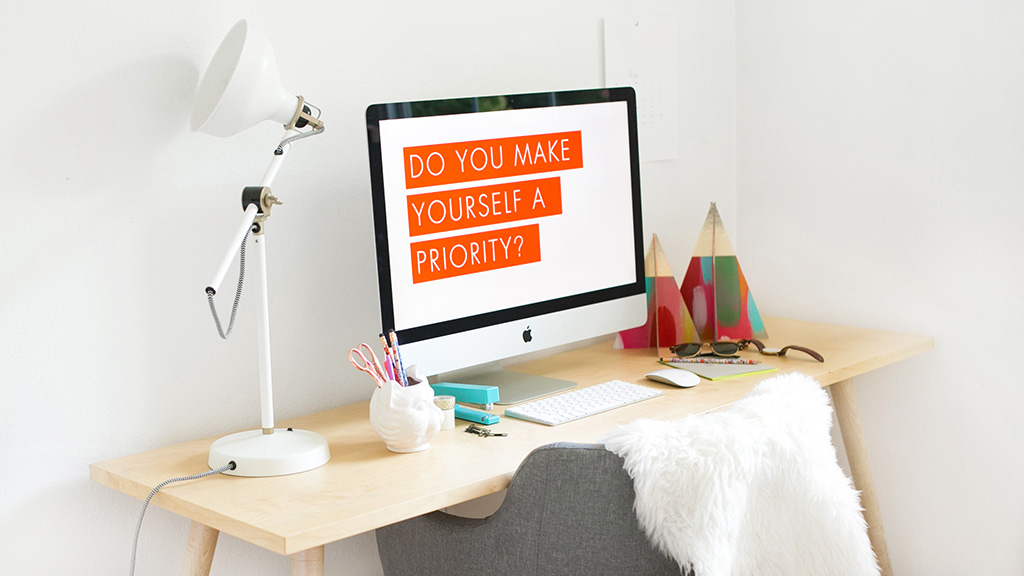Connect
Five Questions To Help You Get Financially Healthier
This journaling exercise is not going to help you save for retirement, get out of debt, or show you how to tighten up your budget so you can finally take that dream vacation. What it will do is help you understand your approach to finances a little bit better so you can work towards a healthier, more balanced relationship with money.
And why is that important? Because how we spend and view money affects our overall health. Whether we like it or not, money can influence how we feel about ourselves, and it can impact our relationships with our loved ones. It can be a source of stress in our lives or give us confidence and make us feel successful.
Are you ready to get started? Read through each question and jot down your answers:
1. What’s your first memory about money?
In Money: A Love Story author Kate Northrup encourages you to look back into your childhood to remember your first money memories. Do you see any connection between your memories and how they inform your actions today? For example, Did your parents complain about money? Refuse to talk about it? Spend it with abandon? Use it as a way to show love? Understanding the formative years of your financial life is a huge eye opener—and the first step to creating a new story.
2. If you were unexpectedly gifted a check for $1,000, would you save it, spend it, or do a combination of both?
Do you consider that check “free fun money” and treat yourself to an online shopping spree? Is it a chance to pay off student loans a little faster? Does it go towards a downpayment on a home? Getting real with yourself here can help you better understand your thought patterns and behaviors when it comes to money.
3. What does money represent to you?
The answer to this question can be drastically different person to person. For some, money is love (“Of course I’m treating you to dinner—please let me do this for you!”). For others, it’s time (“I pay for a house cleaner so I have more time to spend doing other things I’m passionate about). Some see it as freedom (“If I save money, I’ll have options and not be forced to take a job I’m not interested in.”), while other see it as safety (“Having enough money lets me take care of my family”). Understanding what money represents to you can shed some light on where you might be vulnerable when it comes to spending. It can also help you navigate financial conversations with others. For example, if you see money as love, but your partner sees it as freedom, you two will come to the conversation with different points of view. Seeking to understand each other will help you find middle ground.
4. Do you make yourself a priority?
This doesn’t sound like a money-related question, but according to Northrup, valuing yourself has everything to do with financial health. She explains that when we don’t value ourselves, we’re more likely to spend carelessly, with little regard for taking care of our future selves. But when we love and value ourselves, we understand that taking care of our finances is a form of taking care of ourselves.
5. Do you strive for wealth or wellth?
We’re inspired by the movement mindbodygreen Founder Jason Wachob has ignited with his book Wellth. For Jason, living a “rich” life is not about acquiring more and more money, it’s about living “an existence in which happiness is attainable, health is paramount, and daily living is about abundance. It’s a life in which work is purposeful; friendships are deep and plentiful; and there’s a daily sense of richness or overflowing joy.” When these become your touchstones, you’re on the path to a more fulfilled, satisfying life. Money matters, but only as a means to achieve wellth.
Now that you’ve finished the exercise, take stock. Did any of the questions spark epiphanies? Did your answers feel like “aha” moments? Did you see areas where a new approach might help improve your relationship with money? Thinking about money isn’t always easy, but it’s a step in the right direction to help you cultivate a healthier and more balanced relationship with it. Because financial happiness isn’t about having lots of money, it’s about feeling in control of what you do have.
This journaling exercise is not going to help you save for retirement, get out of debt, or show you how to tighten up your budget so you can finally take that dream vacation. What it will do is help you understand your approach to finances a little bit better so you can work towards a healthier, more balanced relationship with money.
And why is that important? Because how we spend and view money affects our overall health. Whether we like it or not, money can influence how we feel about ourselves, and it can impact our relationships with our loved ones. It can be a source of stress in our lives or give us confidence and make us feel successful.
Are you ready to get started? Read through each question and jot down your answers:
1. What’s your first memory about money?
In Money: A Love Story author Kate Northrup encourages you to look back into your childhood to remember your first money memories. Do you see any connection between your memories and how they inform your actions today? For example, Did your parents complain about money? Refuse to talk about it? Spend it with abandon? Use it as a way to show love? Understanding the formative years of your financial life is a huge eye opener—and the first step to creating a new story.
2. If you were unexpectedly gifted a check for $1,000, would you save it, spend it, or do a combination of both?
Do you consider that check “free fun money” and treat yourself to an online shopping spree? Is it a chance to pay off student loans a little faster? Does it go towards a downpayment on a home? Getting real with yourself here can help you better understand your thought patterns and behaviors when it comes to money.
3. What does money represent to you?
The answer to this question can be drastically different person to person. For some, money is love (“Of course I’m treating you to dinner—please let me do this for you!”). For others, it’s time (“I pay for a house cleaner so I have more time to spend doing other things I’m passionate about). Some see it as freedom (“If I save money, I’ll have options and not be forced to take a job I’m not interested in.”), while other see it as safety (“Having enough money lets me take care of my family”). Understanding what money represents to you can shed some light on where you might be vulnerable when it comes to spending. It can also help you navigate financial conversations with others. For example, if you see money as love, but your partner sees it as freedom, you two will come to the conversation with different points of view. Seeking to understand each other will help you find middle ground.
4. Do you make yourself a priority?
This doesn’t sound like a money-related question, but according to Northrup, valuing yourself has everything to do with financial health. She explains that when we don’t value ourselves, we’re more likely to spend carelessly, with little regard for taking care of our future selves. But when we love and value ourselves, we understand that taking care of our finances is a form of taking care of ourselves.
5. Do you strive for wealth or wellth?
We’re inspired by the movement mindbodygreen Founder Jason Wachob has ignited with his book Wellth. For Jason, living a “rich” life is not about acquiring more and more money, it’s about living “an existence in which happiness is attainable, health is paramount, and daily living is about abundance. It’s a life in which work is purposeful; friendships are deep and plentiful; and there’s a daily sense of richness or overflowing joy.” When these become your touchstones, you’re on the path to a more fulfilled, satisfying life. Money matters, but only as a means to achieve wellth.
Now that you’ve finished the exercise, take stock. Did any of the questions spark epiphanies? Did your answers feel like “aha” moments? Did you see areas where a new approach might help improve your relationship with money? Thinking about money isn’t always easy, but it’s a step in the right direction to help you cultivate a healthier and more balanced relationship with it. Because financial happiness isn’t about having lots of money, it’s about feeling in control of what you do have.










0 people have left a comment. Join the conversation!
View Comments